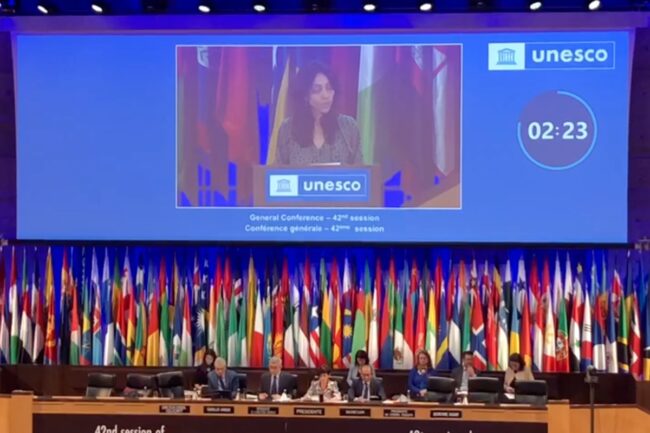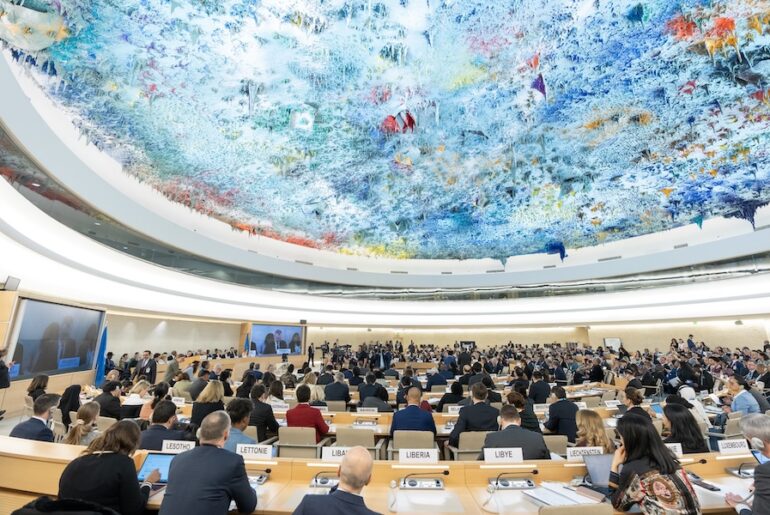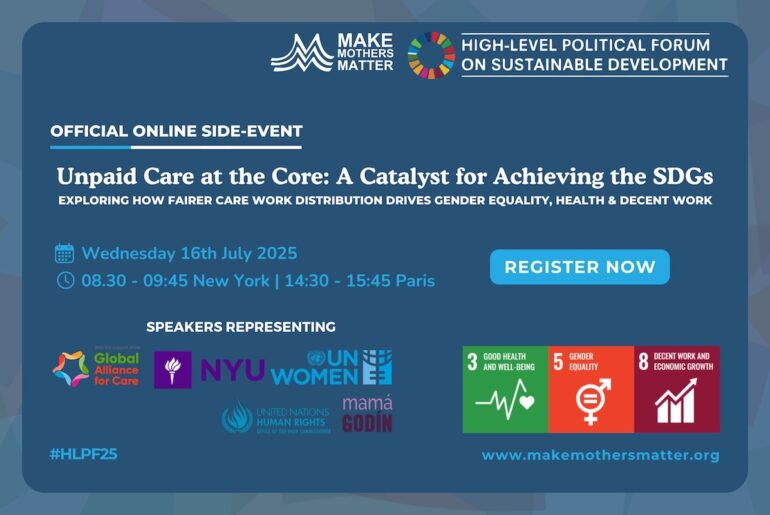Unpaid care and domestic work a major obstacle to girls’ education
14.11.23
UNESCO, General Conference - Taking the floor as part of the General Policy debate, MMM denounced the impacts of gendered stereotypes and gender roles on girls' access to education. As care needs are expected to rise significantly, we also called for changing mentalities to prevent young girls' futures from being decided as early as age 5, and promote a more equitable sharing of unpaid domestic and care work between boys and girls during childhood - a necessary step to progress on gender equality.

The following is our full statement, delivered by MMM representative Ilhame Boirie-Joubert.
I would like to begin by reading a few revealing testimonies:
- Reine, a mere child from Togo says: “To be a good daughter, I should do housework and do what my parents want. Good girls behave well at home and do everything they are told to do. My parents make my sisters and I work much harder than my brothers – and we think they’re right.”
- And Valeria, another young girl from Salvador says: “Sometimes I have to take care of mommy if she’s sick. Sometimes I can do something for her, like if she can’t get up. That is why I hardly go to school”.
These powerful yet troubling statements come from young girls, deprived of an empowering education, because they’re girls and kept busy at home.
This reality is shared by huge numbers of young girls around the world.
- Girls aged 5-9 spend 30% more time on work around the home than boys of the same age. These mechanisms, put in place from an early age determine the lives of these young girls, jeopardizing their ability to access an education that would otherwise make them autonomous.
- Furthermore, figures predict that by 2030, the number of care recipients (children under the age of 15 and persons above 60 years old) will rise to 2.3 billion people out of 8.5 billion globally.
Talking about educating and empowering young girls without taking into account the considerable weight they carry in domestic work is absolute nonsense.
The Nobel Prize-winning Harvard economist Claudia Goldin has demonstrated that differences in pay and labor force participation cannot be attributed to biological differences, but to the division of unpaid caregiving and household labor between heterosexual couples.
Available figures prove it, categorically. The international community recognizes the importance of this systemic problem.
We believe a similar parallel can be drawn with obstacles many girls face in accessing an education.
It is therefore imperative that we – States, civil society, NGOs – take more direct action and intervene much earlier to prevent young girls’ futures from being decided as early as age 5. Reflexes and beliefs are imprinted from earliest childhood.
At MMM, many grass roots associations in our member network work to change mentalities, for instance:
- Providing young girls with adapted economic empowerment, that gives them a status in their communities and higher educational possibilities for both themselves and their children.
- Raising awareness amongst young men, deconstructing preconceived ideas about masculinity, and encouraging them to play their part in the home.
Such initiatives must be collectively supported, amplified, and replicated.
We need to mobilize our forces. Act now. And act together.
The 42nd General Conference took place from 7 to 22 November 2023 at the UNESCO headquarters in Paris.
Envisioning care as a common thread to global crises
29.07.24
UN New York - Our virtual HLPF side-event brought together experts to shed light on how the various global crises we face (in particular climate change and other environmental crises,
We call for multi-stakeholder approach to recognise and support unpaid care work
21.07.24
UN New York - Participating in the meeting of the UN Economic and Social Council (ECOSOC) on care and support systems, MMM reaffirmed the principle of co-responsibility, which should underpin
The New EU Gender Equality Roadmap : A Call for Inclusion of Mothers
04.03.25
The European Commission’s initiative on a new Gender Equality Roadmap post-2025, marks a significant step forward in addressing gender disparities across the European Union. Make Mothers Matter (MMM








